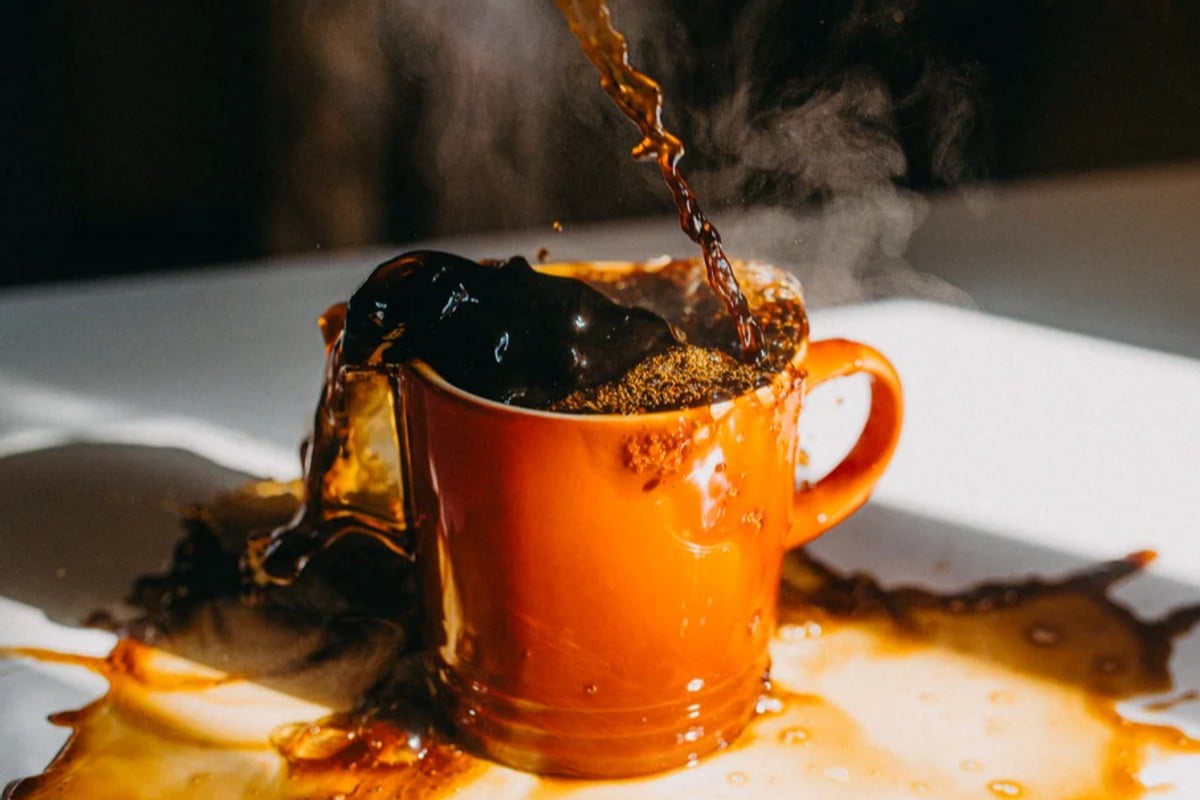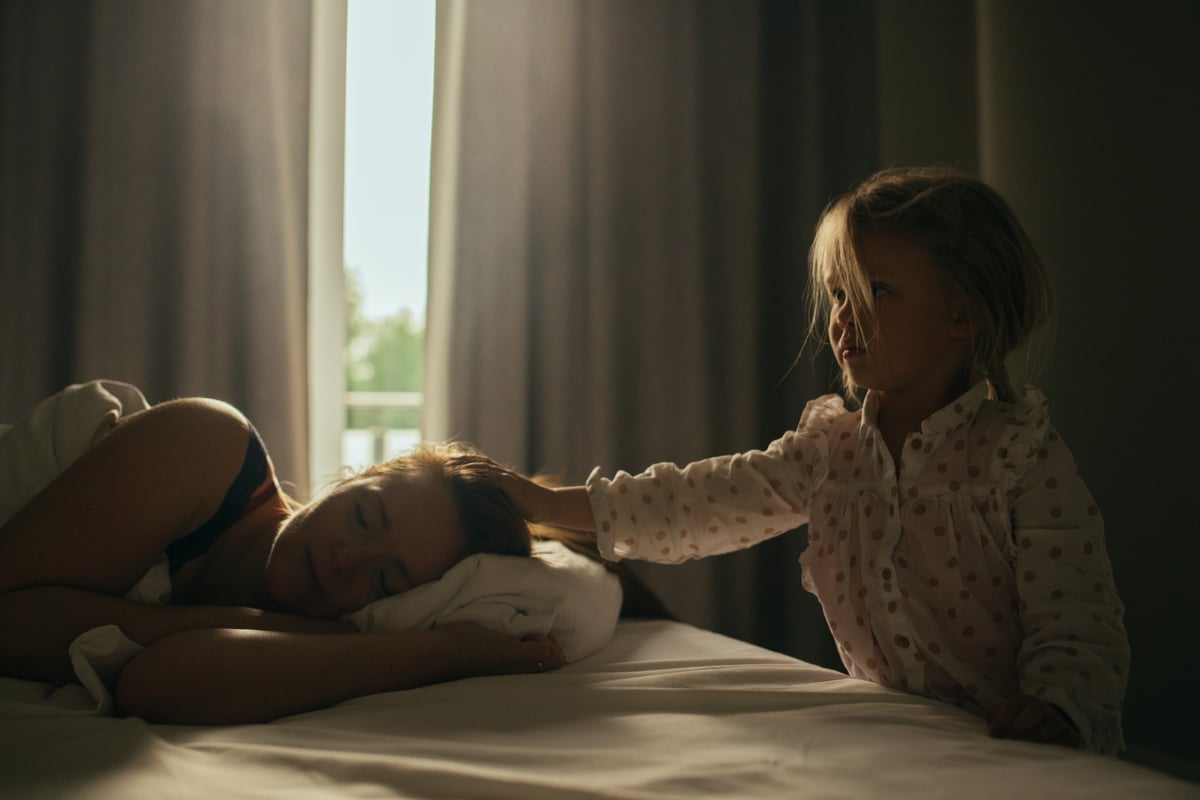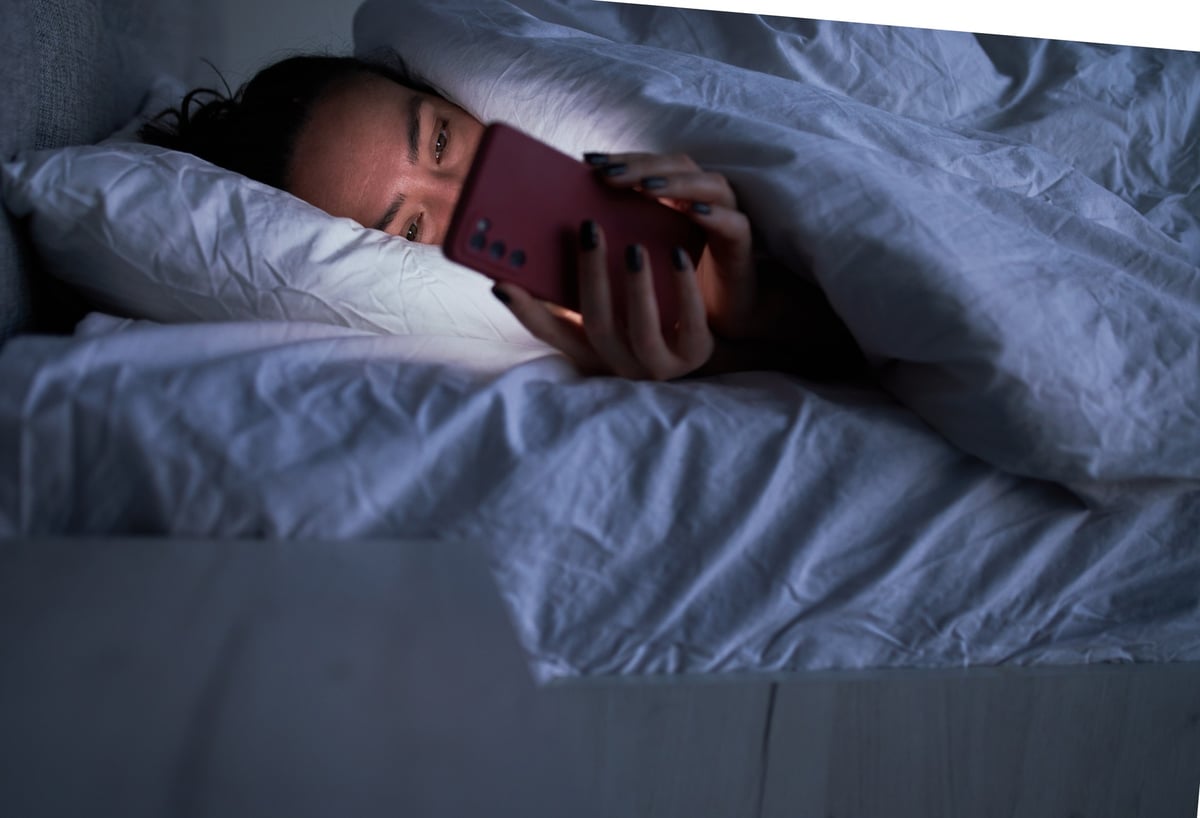
You're in bed. It's 11:44pm, and with every minute that passes, the pit of anxiety in your stomach ratchets up.
You need to get to sleep.
You've listened to the podcasts, you've read the research, and you're painfully aware that without a full eight or nine hours (more if you're perimenopausal), your risk of adverse health impacts — everything from diabetes to dementia — increases.
Listen to the latest episode of the Well podcast below, post continues.
You know your mental health is compromised without a healthy sleep pattern, you know you're more likely to wake up and crave junk food, and you know the brain fog that's been a constant companion for longer than you care to remember will only get foggier, but there is one (or two, or three) little barrier standing between you and the land of health-improving nod…
Children.
The parenting paradox.
Those joy-bringing, life-sucking and sleep-demolishing creatures, the ones that no 'sleep hygiene advice' seems to ever take into account.
Because no matter how much blue light you avoid before bed, it doesn't seem to impact the fact that they pad in each night on little feet at 2am, begging to get in for a cuddle (if you're lucky) or requiring lengthy periods of resettling if you're not.
And even if you're in possession of those rare unicorn children who remain in their own beds all night long, the likelihood is that they — having drifted off around 7:30pm — are ready and rearing for WeetBix sometime around dawn.
 Your little people are some of the biggest disruptors of sleep. Image: Getty
Your little people are some of the biggest disruptors of sleep. Image: Getty






























































































